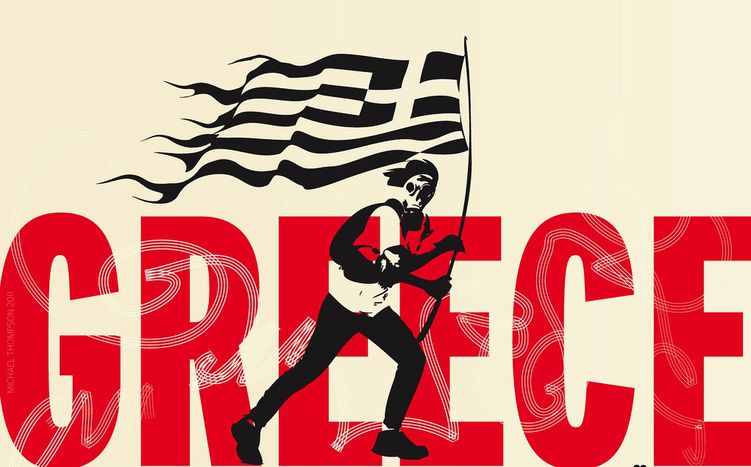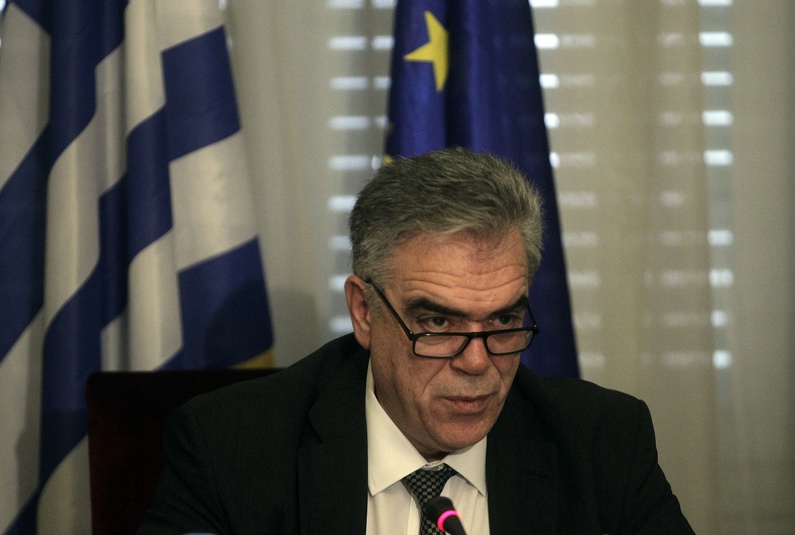
Grece: a low-cost Presidency ?
Published on
Translation by:
Alyssa SandersFor the fifth time since it's entry into the European Union, Greece will preside the presidency of the Conceil of the European Union. Being an election year, this Presidency will operate in a more specific fashion that demonstrates once again the politics of a country subject to a serious change in régime.
Greece will, for the fifth time since it's entry into the European Union in 1981, preside over the Conseil of the European Union. This fifth presidency arises as the EU, in a financial crises, must deal with the issues of prosperity and stability which can only be achieved by working for the reaffirmation of a "European mission." In addition, under the Greek President that the European Elections of 2014 will take place, during a period of confusing in a Europe which, until now, has proposed policy and austerity plans which have yet to reassure the citizens of the Europe, now composed of 28.
A rather unusual Presidency
The Greek Presidency will have 4 months to handle the classified documents, before the elections of the European Parliment in May 2014. In addition, the presidency will be placed under the sign of savings. While previous presidencies have had budgets of between 60 and 80 million euros for their administrative staff of 250, Greece will manage with a smaller budget as they employ nearly half that figure -- 130 staff members.
The Secretary of State for Foreign Affairs, Dimitris Kourkoulas declared, during a press conference last Tuesday the 12th of December, that the Greek Presidency would be a « cost-efficient Presidency ». Simply put : a effective President who is not extravagent. He explains: « a report of the financial situation, we will have an extremely limited budget for the Presidency compared to other countries. We will be practicing a spartian control over our ressources. »

The groundwork of European values and an educational emphasis on the cost of a likely disaffection (democratic) to the European idea seems essential to this presidency to avoid Eurosceptic wave the next election. For his part, Prime Minister Antonis Samaras presented the real priorities of the Greek Presidency at the EU summit on December 20: growth, employment, cohesion and deepening of the banking and fiscal union, the fight against migration flows at external borders of the EU and strengthening the EU's integrated Maritime Policy.
For that matter, the Presidency is also working on strengthening the Economic and Monetary Union and especially its social dimension and the coordination of fiscal and monetary policies. This effort to promote and consolidate the banking union could result in a restoration of confidence in the European economy. The central issue remains the effective circulation of the new economic mechanisms for an successful governance.
Régime sec
In a period of unstability, the question of illegal immegation is the central question, particularly for the countries situated on the borders of Euope--those the most affected by the financial problems. The Greek Presidency will thus want to underline the positive effects and necessity of a common European policy concerning immigration. The management and security of the European maritime frontiers will equally come into question during the first semester of 2014. Greece wishes to redefine and relance an integral European maritime policy.
Concerning the expansion of borders, the future Presidency hopes to be very attentive towards the situations of the neighboring countries, of the situation in Syria and the strengthening of relations with Moldova. The Prime Minister of Greece concluded the press conference with a reminder that the solution to the crisis in is due to the help and support of the citizens.
Samaras ultimately hopes than in the European Union, where the differences between the Northern and Southern regions continue to grow, tthe Greek Presidency is the reflection of a European policy that would rise from the dogma of austerity that of a growing Europe. The challenges of this presidency will be both economic and democratic. It remains to be seen what will be possible to achieve with little means and especially a short period of time.
Translated from Grèce : une présidence low-cost ?



